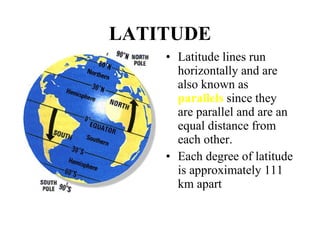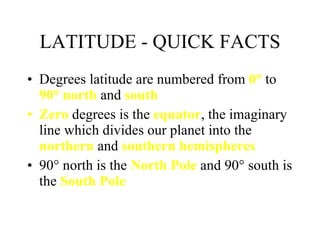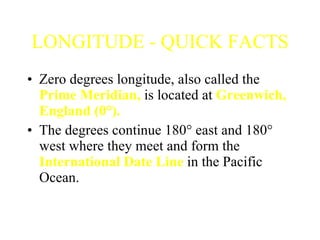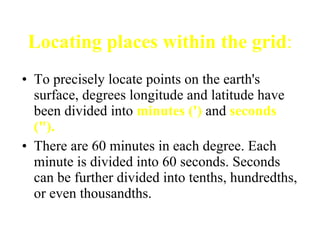Latitude & Longitude
- 2. LATITUDE Latitude lines run horizontally and are also known as parallels since they are parallel and are an equal distance from each other. Each degree of latitude is approximately 111 km apart
- 3. LATITUDE - QUICK FACTS Degrees latitude are numbered from 0° to 90° north and south . Zero degrees is the equator , the imaginary line which divides our planet into the northern and southern hemispheres . 90° north is the North Pole and 90° south is the South Pole .
- 4. LONGITUDE The vertical longitude lines are also known as meridians . They converge at the poles and are widest at the equator (about 111 km apart).
- 5. LONGITUDE - QUICK FACTS Zero degrees longitude, also called the Prime Meridian, is located at Greenwich, England (0°). The degrees continue 180° east and 180° west where they meet and form the International Date Line in the Pacific Ocean.
- 6. Locating places within the grid : To precisely locate points on the earth's surface, degrees longitude and latitude have been divided into minutes (') and seconds ("). There are 60 minutes in each degree. Each minute is divided into 60 seconds. Seconds can be further divided into tenths, hundredths, or even thousandths.





